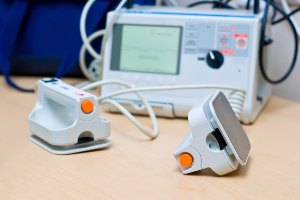Blog
When Could Failure To Resuscitate Be Considered Medical Malpractice?
Posted on behalf of Peter T. Nicholl in Medical Malpractice Published on September 14, 2023 and updated on September 25, 2023.
Doctors provide care for a wide variety of medical issues, but the most important thing they do is provide life-saving treatment. For example, sometimes they need to resuscitate patients who have gone into cardiac arrest or are suffering from some other life-threatening emergency.
The problem is doctors sometimes fail to resuscitate patients. This could be because of malfunctioning equipment, a lack of proper life-saving equipment or incorrect life-saving techniques.
Below, we discuss when failure to resuscitate patients could be considered medical malpractice. If your loved one died because of a doctor’s failure to resuscitate, our experienced Maryland medical malpractice lawyers may be able to help you take legal action.
Call us to discuss your potential legal options. Phone: 410-297-0271.
Why Doctors May Fail To Resuscitate Patients
There are a variety of reasons why doctors might fail to resuscitate a patient.
Failing To Have Resuscitation Equipment Available
Sometimes doctors fail to resuscitate patients because they do not have the required equipment. This may include:
- Crash cart
- Defibrillator
- Airway management equipment (endotracheal tubes, oxygen cylinders, etc.)
- Life-saving medication that may help to stabilize the patient’s vital signs
- And more
Doctors may have failed to bring in the required equipment in time. This could be because they failed to closely monitor the patient or they took too long to decide how to respond. While these can be incredibly stressful situations, doctors must provide care that meets accepted medical standards. That means they need to know how to respond and they need to respond quickly.
Errors With Resuscitation Equipment
Even if doctors have the equipment they need to provide life-saving care, sometimes doctors make mistakes when using the equipment.
For example, doctors may use equipment the wrong way. They might fail to intubate the patient properly. If the patient is a newborn or infant, doctors may apply too much pressure when performing chest compressions.
Doctors may commit errors with life-saving equipment because they are unfamiliar with it or they may be unfamiliar with the proper procedures.
Sometimes doctors know how to use the equipment properly, but there are technical problems, such as:
- Drained batteries
- Equipment failure
- Empty oxygen tanks
- Endotracheal tubes are the wrong size
- The equipment needs maintenance or there are mechanical problems that have not been fixed
- A crash cart may be secured with a padlock and doctors may not be able to find the key
- The crash cart has not been properly stocked
- The equipment may be defective or something may have been damaged when it was delivered to the hospital
Other technical errors that could affect the ability of doctors to resuscitate a patient include medication errors, such as administering the wrong medication or the wrong dose.
When Does Failure To Resuscitate Fall Below the Standard of Care?
Doctors may be held liable for injuries and damages caused by failure to resuscitate. However, victims and their lawyers must prove doctors’ failure to resuscitate was a failure to meet the standard of care.
Every case is different, which means lawyers need to carefully evaluate what occurred:
- How did doctors respond to the emergency?
- Did they have the equipment they needed?
- Did doctors use equipment appropriately?
- Did doctors fail to respond quickly enough?
- Was the patient being monitored appropriately?
Failure to resuscitate is something that could happen right after a baby is born. That is why there is supposed to be one medical professional exclusively focused on the baby. This person needs to know how to perform a complete resuscitation. They also need to respond right away. If medical professionals fail to respond within one minute, the baby is likely to suffer permanent brain damage.
Another factor that may come into play is whether the medical professionals involved in treating the patient knew the proper procedures for resuscitating patients. They need to know where the equipment is located and how to use it properly.
Sometimes a medical malpractice case could be built around the fact that doctors failed to anticipate problems. For example, they should be able to anticipate a difficult delivery may occur if the mother is overweight or has other health issues.
Doctors should also closely monitor patients who are in failing health, as they may need to be resuscitated at some point. When it comes to saving a patient’s life, time is of the essence.
Another factor that could come up in a failure to resuscitate case is neglecting to take a full medical history for the patient. Failing to do this means doctors do not have all the information about a patient. This hurts their ability to make fully informed decisions about medical care and monitoring of the patient.
Proving a medical malpractice case is a complex task, which is why you are required to bring in a medical expert. An expert can determine when doctors may have failed to meet the accepted medical standards. They can explain how doctors should have acted differently to try to save the patient’s life.
Was Your Loved One a Victim of Medical Malpractice? Call For Legal Help
The Law Offices of Peter T. Nicholl has been representing medical malpractice victims for decades, securing millions in compensation on their behalf. We know how devastating medical malpractice can be and we are deeply committed to securing full compensation for the damages victims have suffered.
If you or a loved one were injured by medical malpractice, give us a call to discuss your potential legal options. There are no upfront fees for our services.
Call The Law Offices of Peter T. Nicholl for assistance: 410-297-0271.

